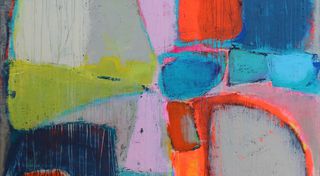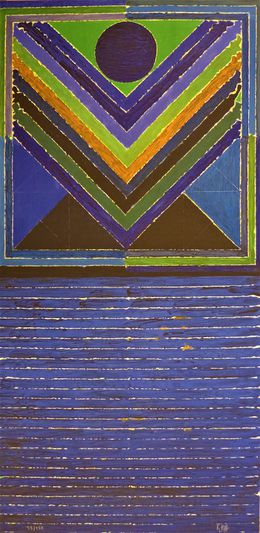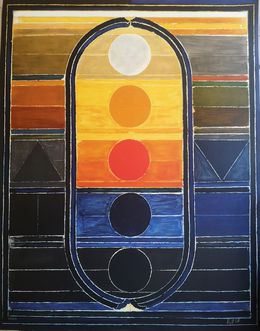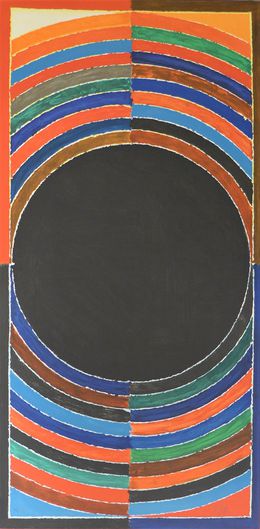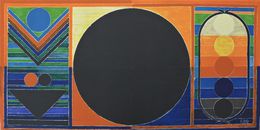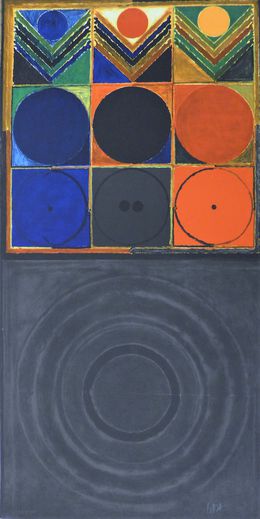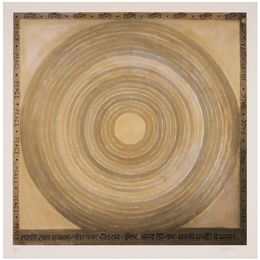
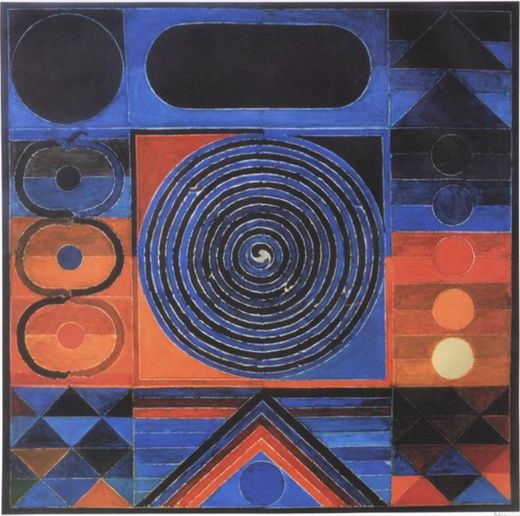
Biography
Sayed Haider Raza was born in 1922 in Madhya Pradesh and studied painting at the Nagpur School of Art and the Sir J.J. School. A founding member of a group of Progressive artists, Raza actively participated in the activities of the Group, stimulated many debates to develop a modernist language, while presenting several exhibitions of his paintings in India before leaving for France on a scholarship from the French government in 1950. In Paris, he studied painting at the Ecole Nationale des Beaux-Arts from 1950 to 1953.
Awarded the Prix de la Critique in 1956 in Paris, Raza has held numerous exhibitions both in India and abroad. He has participated in the Venice, Sao Paulo, and Menton Biennales and has presented retrospectives, most recently in 1997 in Mumbai, Bhopal, and New Delhi. The University of California invited him as a lecturer in the Berkeley Art Department in 1962. In December 1978, the government of Madhya Pradesh, his birthplace, invited him to Bhopal for a tribute and exhibition of his work. He was awarded the Padma Shri in 1981 and was elected a fellow of the Lalit Kala Akademi in 1983. In 1997, Raza was awarded the prestigious Kalidas Samman by the government of Madhya Pradesh.
Raza's powerful paintings resonate the passionate warm colors of India with all their symbolic emotional value. Drawing on childhood memories spent in the forests, he was also inspired by Indian metaphysical thought. Many of his paintings have a dark circular focal point, called the Bindu, which he believes is the source of energy and creativity. The vivid colors and geometric shapes in Raza's paintings have sometimes been mistaken for neo-Tantrik art, but according to the artist, there is no affiliation with this school. Preoccupied with imminent energies, he is a modernist concerned with the plastic qualities of art and its emergence to the surface. Raza lived and worked until recently in Paris and Gorbio in the south of France before returning to India.
Discover the movements linked to Sayed Haider Raza
Ben

Jérôme Mesnager

Bernar Venet
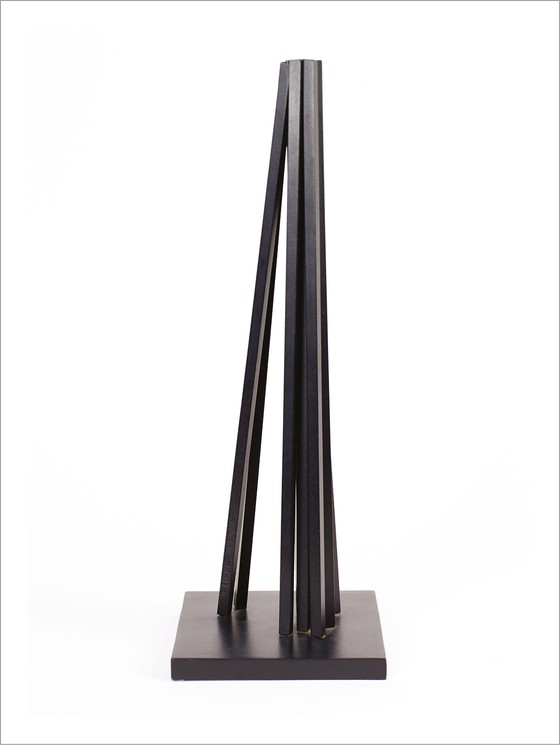
Bert Stern

Jef Aérosol

Karl Lagasse

Romero Britto

Bernard Pras

